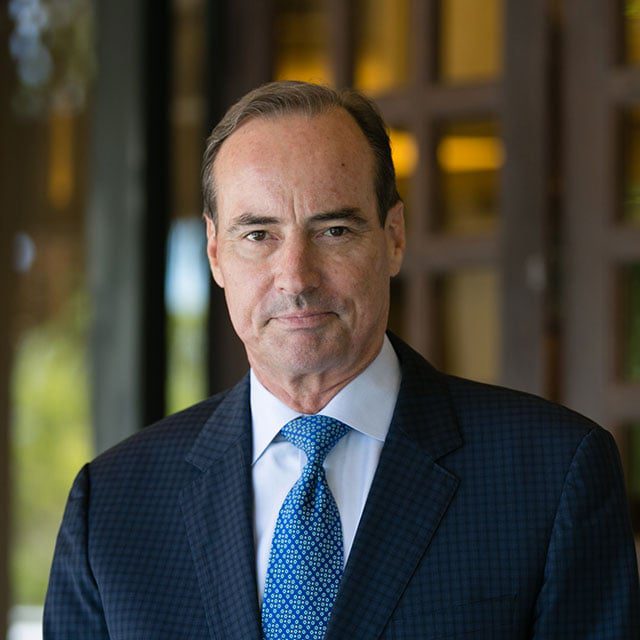Harry Dent: 'Crash of a Lifetime' Coming in 2024

“People think I’m crazy when I say the stock market will go down 86% on the S&P — the worst case but also my most likely case,” Harry Dent Jr., the candid, controversial strategist, argues in an interview with ThinkAdvisor.
“People say, ‘Harry, the Fed won’t let that happen,’” says Dent. “Well, in the end, when there’s a battle between God and central bankers, I’m going to bet on God!”
Several of Dent’s forecasts have been off-base, but the “Contrarian’s Contrarian” has been on target with some significant prognostications.
He correctly predicted Japan’s 1989 bubble burst and recession, the dotcom crash and the populist surge that thrust Donald Trump into the presidency.
For several years now, Dent has been forecasting “the crash of a lifetime.” Now, he says, 2024 will be the year it hits — “two years later than it should have,” according to his calculations. But “it’s starting now,” he insists.
In the interview, the strategist — whose independent research firm, HSD Publishing, produces monthly newsletters that Dent and partner Rodney Johnson each write — predicts big crashes in both the stock market and real estate, which will set off a deep recession.
Beware of a weak January 2024, he warns. It will foretell “the type of crash I’m talking about.”
Anything smart to invest in right now?
“There’s nowhere to hide” except “the best safe haven”: Treasury bonds, Dent maintains.
In the recent phone interview with Dent, who was speaking from his San Juan, Puerto Rico, base, he declares: “We need a recession to throw out the bad stuff so we can go into the next boom lean and mean.”
Here are excerpts from our conversation:
THINKADVISOR: Are Federal Reserve policies a help or hindrance?
HARRY DENT: People think I’m crazy when I say the stock market will go down 86% on the S&P — the worst case but also my most likely case.
People say, ‘Harry, the Fed won’t let that happen.’ Well, in the end, when there’s a battle between God and central bankers, I’m going to bet on God!”
“If [the market] doesn’t go down that much, the central bank is compromising the next boom — which will be the greatest boom.
In my interview with you in January, you predicted “the crash of a lifetime,” which you’ve been predicting for some time now. You said then that after “one more new low, we’ll be down 50%-60%.” Why hasn’t that happened?
It’s two years later than it should be. But the crash has started.
My error is so simple. My charts pointed to late 2022 as the biggest down cycle in modern history.
I didn’t think it would be possible to keep pumping up something [the economy] on pure fumes — just printing money, throwing money into the markets, which keeps the rich, rich and spending.
So the [up] market has lasted longer than I thought. But I think it’s cracking. All the market needs to do is break down to a new low, but it just can’t do it.
Do you still see a recession looming?
Yes. We need a recession. This is the longest we’ve ever gone without a recession or a major stock market correction or crash to clear the decks and throw out the bad stuff so we can go into the next boom lean and mean.
The longer the boom, the more the overinvestment, zombie companies and debt. You have to wash out all the excesses.
Even though the Fed is hiking like crazy, people think they’ll change on a dime if they have to and will stimulate again. They don’t think the Fed will let the market fall too far.
What are the implications?
If we keep doing this forever, it means that the next boom will probably be a nothing-burger with the millennials because they’re going to be sharing all our excessive, overly valued financial assets and bad debts into the future since we didn’t allow those to be weeded out.
This is a war of central banks against free markets. In the end, the free markets are going to win because they’re the closest thing to God when it comes to money; and the central banks are a bunch of academic people who never ran a business.
What’s a big mistake that the central banks made?




